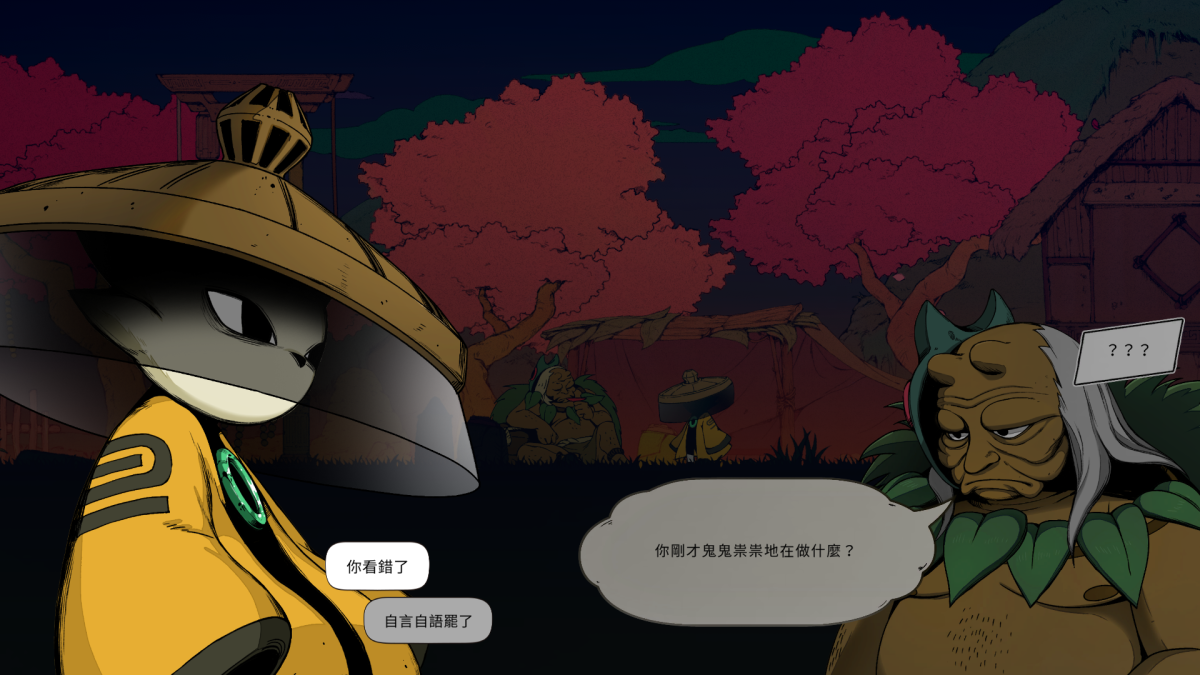Nine Sols is a brutally challenging hand-drawn Action Platformer developed by the Taiwan based studio Red Candle Games. The game focuses primarily on combat, exploration and a story that blends east Asian religion and Cyberpunk elements. But to describe Nine Sols with such clinical terms feels almost inherently wrong. It’s a game with so much obvious passion, so carefully crafted, so dedicated to surprising its players at every turn of its roughly 25 hour runtime that to not reflect that same level of passion in descriptions made of it almost feels like a disservice to its quality.
Nine Sols doesn’t just have a focus on combat, it provides the most nail-bitingly intense duels I’ve ever experienced in a 2D game. It doesn’t just have a good story, it’s a heartfelt parable about the nature of mortality, ego, and loss, steeped in the unique cultural history. Sure, there are a few bugs here and there, but they’re a drop in the bucket in the face of what the game gets right. Nine Sols is the single most imaginative, addictive, and enthralling game I’ve played all year, and the fact that it’s spent all of its time under the radar is (especially in light of it not being nominated for even a single category at the 2024 game awards) nothing short of a shame. In light of this, if this review convinces even one person to play it, then any and all effort I put into writing it will have been worth it.
You play as the cold and calculating Fangshi (roid raging Asian wizard) Yi, on a mad quest to kill the titular Nine Sols, the rulers of New Kunlun-the east Asian themed cyberpunk megastructure the game takes place on-for reasons that are unknown to the player at the start. You go from area to area, getting into combat and collecting items along the way until you reach a sol, kill them in some of the most hype duels ever committed to a 2D game.

Along your path, you’ll come across a litany of enemies, almost all of which are almost unanimously willing and able to jump you and shred your health bar to ribbons in five (5) (V) (X-1=4) seconds or less. So how are you supposed to fend off such vicious opposition? Simple. Jump them back harder. You see, Yi is a freak of nature that is not only outfitted with a modifiable endoskeleton composed entirely of pure jade that gives him the strength and stamina of a mentally ill homeless man juiced on four cans of Redbull, he (and the following sentence is entirely lore-accurate) is functionally immortal because of being cyclically revived by a divine tree after a childhood experiment in which he killed himself via the science fantasy equivalent of microwaving a metal spoon.
In gameplay terms, this translates to Yi being able to effortlessly deflect any and all attacks thrown at him and respond in kind with his own offensive. For every attack you deflect, you get a chi charge that you can use on a talisman, dashing into the enemy, sticking it onto them and then detonating it to deal massive damage. Deflecting attacks will also deal internal damage, which is incapable of outright killing an enemy, but will be converted into actual damage upon talisman explosion. In practical terms, this translates to you being able to erase half of a boss’s health bar in a single move if you play your cards right.
All of these factors lead to Nine Sols becoming an enthralling duel simulator, as you have to narrowly avoid a flurry of attacks before responding in kind to press your own advantage. The game encourages you at every turn to play rushdown, getting in the enemy’s face and nullifying their offensive before throwing all that damage right back into their face. Combat is easily Nine Sols’ crowning achievement, but what makes the game special is how it intertwines its combat with exploration, and both of them with its story.
Most of Nine Sols’ story is unraveled in two specific places. The first of which being the Four Seasons Pavilion, the main hub area of the game. It’s a place populated solely by peaceful NPC’s, from the alcoholic conspiracy theorist Shennong, the loyal and intelligent AI program Ruyi, and most importantly, Shuanshuan, a young boy who looks up to Yi and acts as one of the main emotional linchpins of the game’s story. The second is in the game’s incredible bosses, Yi’s former colleagues who all have a grudge against him for some reason or another, revealing more about his past and the history of New Kunlun with each one you dispose of. Each and every character’s arc has some level of integration with the gameplay. For example, there are dozens of artefacts from the golden age of Nine Sols’ world that you can give to Shuanshuan, forcing Yi to drop his cold demeanor and reminisce about his sordid past.
Overall, Nine Sols is an incredible game that combines excellent gameplay with an excellent story. It’s easily my game of the year and my only worry for it is that it will never get the recognition it deserves. If you’re interested in the prospect of playing it, there’s a free demo for the game on Steam that acts as a decent vertical slice of what the game has to offer. Because of my efforts to keep this review as spoiler-free as possible, keeping me from discussing the game’s best moments, I believe this demo will likely sell it far better than I could.

























